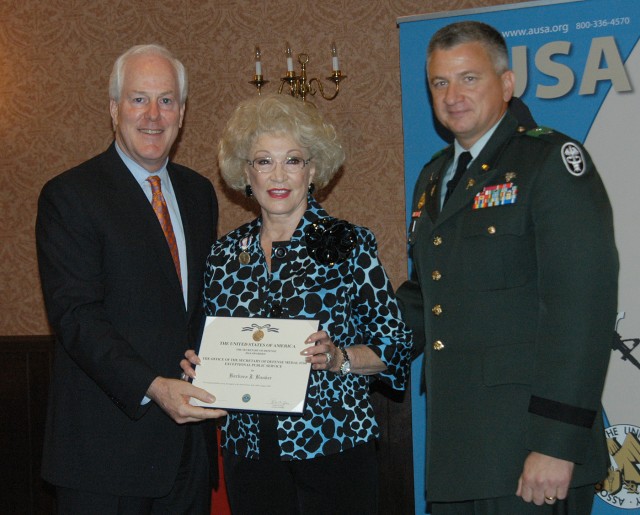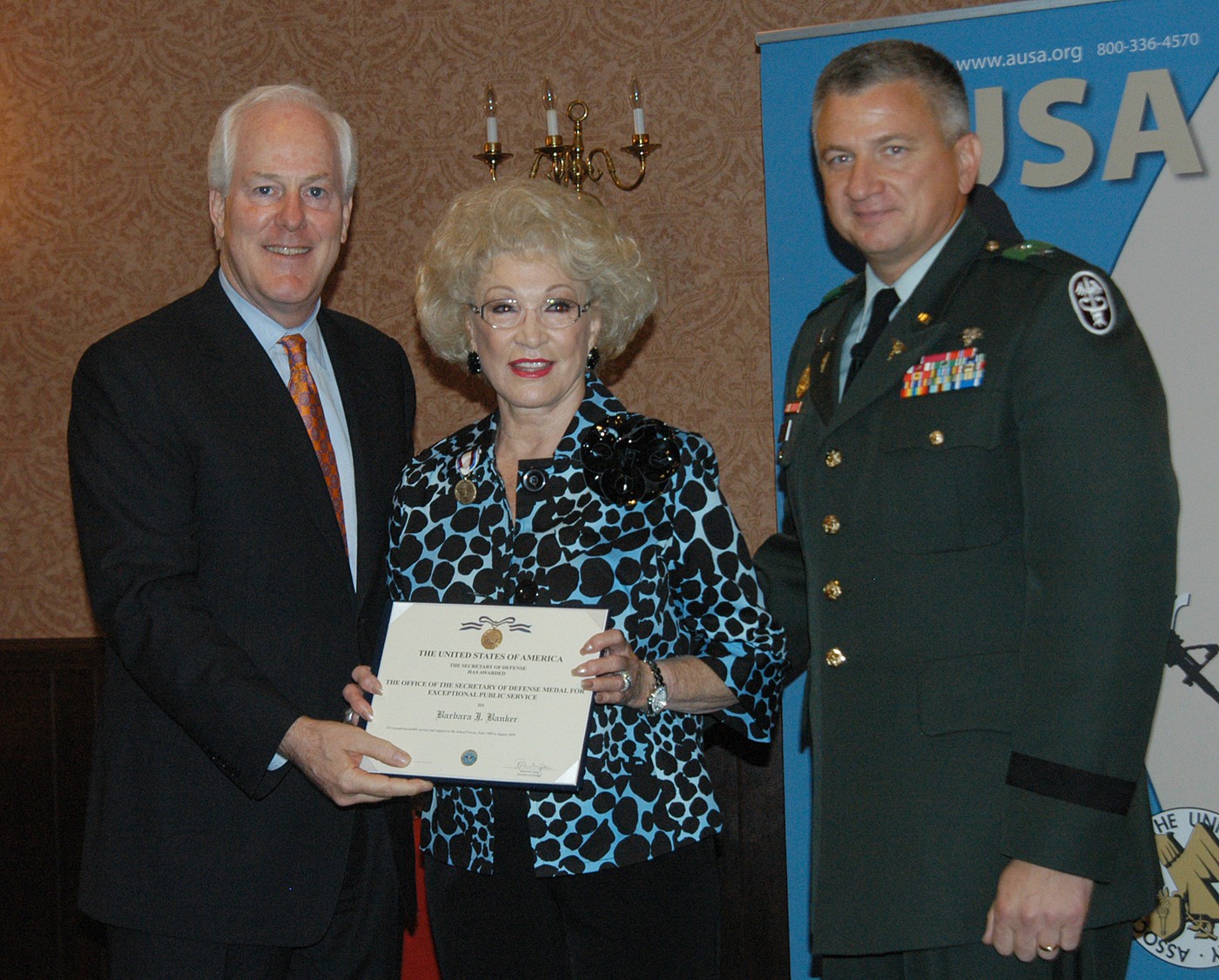
FORT SAM HOUSTON, Texas -- Guests of the Association of the United States Army, Alamo Chapter, commemorated Patriot Day, Sept. 11, during their quarterly luncheon with a visit by U.S. Senator John Cornyn and a presentation by Maj. Gen. Russell J. Czerw, commander, Fort Sam Houston and U.S. Army Medical Department Center and School.
Approximately 200 people attended.
During the luncheon Cornyn awarded Barbara J. Banker the Secretary of Defense Outstanding Public Service Award for her work with wounded warriors and support of a multitude of programs and events at FSH.
"She's done great service for our men and women in uniform and I'm here to honor her," Cornyn said.
Initially called the Prayer and Remembrance for the Victims of the Terrorist Attacks, President George W. Bush signed the U.S. House of Representatives Joint Resolution 71 into law in 2002 creating Patriot Day.
"We need to not forget the lessons of 9/11, which I think, first and foremost, is to deny safe haven to Al Qaida and other Islamic extremists so they have no place to train, operate and project their violence against America or anyone else," Cornyn said.
"It's a day of remembrance," said AUSA President Bradley Freeman during his welcome remarks, and referenced a direct link between events in Washington, D.C. on Sept. 11, 2001 and FSH.
"The only individual in the Army Medical Department that was a casualty in 9/11 was a Medical Service officer, (Lt. Col.) Karen Wagner. She was working at the Pentagon and here at Fort Sam we have renamed Building 902 after her, Wagner Hall."
Freeman said Wagner Hall has a memorial just inside the front door that includes a portrait of the major and a brick from the Pentagon. He said it is important to keep the memory of that day alive.
"I don't think anyone can forget," he said.
"It's now a piece of our history, and remembering helps put that moment in time into perspective," said U.S. Army Garrison Commander, Col. Mary Garr, who was attending the luncheon. "It should help influence our future decisions and how we determine our course of direction not only for ourselves but for our children down the road."
"We have to remember the context of the history from which we've come so we know that path we're continuing to forge and don't stray from where our Founding Fathers wanted us to be going. They laid out a very good course for us, kept it flexible enough that we could go in a lot of different directions and we get to choose which of those directions makes the most sense."
"Anniversaries are certainly meaningful," Czerw said. "We come together today to remember the devastation and suffering that will always linger in the minds of Americans. We can all reach back and remember where we were, specifically at zero-eight-four-six when American Airlines flight number 11 hit the World Trade Center's north tower."
Czerw explained the military must adapt in order to defend against terrorism, and lessons learned during the past eight years led to positive developments, specifically in combat medicine over the past 118 years.
"Soldiers injured during the Civil War had a 50 percent change of survival, 70 percent during WWII and in Viet Nam, about 74 percent. Desert Shield/Desert Storm, about 80 percent of those injured, survived. Today, we have a greater than 90 percent survivor rate on the battlefield."
He cited research at FSH as the reason for improved survivability rates. "Every IED that goes off is studied by the military in huge detail, and that information comes back to AMEDD Center and School."
As a result, an Improved First-Aid Kit was developed and issued to deploying troops. The IFAK equips with tools to help stop bleeding and/or keep injured troops breathing until help arrives.
A component of the kit, the Combat Application Tourniquet, also developed at FSH was named one of 10 best Army inventions in 2005, and used by police and firefighters throughout the country.
Czerw also credited improved response time for helping Soldiers survive and recover from wounds.
He said it took up to 45 days in Viet Nam to get an injured Soldier to care, but today a Soldier will be at a Level 4 hospital in 24-48 hours.

Social Sharing